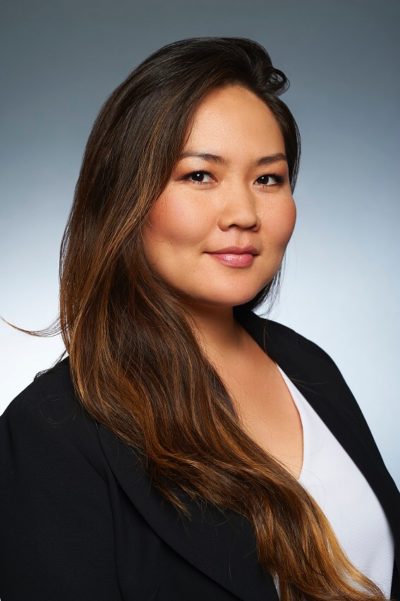Financial Crisis to Financial Career: Maral Chukhalkhuu
Maral Chukhalkhuu, BIB/08, was finishing her Bachelor of International Business degree when the financial crisis took place in 2008. She remembers one of her finance classes going to New York to take a tour of the stock exchange. Less than a week later, the markets crashed. At the time she did not feel as though the crash affected her, but once she graduated, she saw that the job opportunities were not as plentiful as they had been.

It took Maral six months before she found a job in her field. Earlier that year, at the SBSS Business Banquet, Maral had met some employees from RBC. She did her research, got her Investment Funds in Canada certificate, and then got in touch with the contacts she had made at the banquet. This led to her being hired as an account manager.
“When you go to these events and make connections with people, follow up,” Maral advised. “I didn’t know I was going to go work in a bank, but when I graduated, I kept in touch with them just to say ‘nice to meet you.’ Then, when I was looking for a job, I decided to actually contact them. I knew that just because I met them before, doesn’t mean they will hire me. I had to prove myself, show my abilities, grades, transcripts, diplomas and show initiative by doing the course needed for the job ahead of time.”
After working as an account manager for two and a half years at RBC, Maral was promoted to become a business account manager for small businesses, where she worked with local business owners and helped them with their borrowing needs. She enjoyed this role for about three years before she made a lateral move to work at RBC PH&N Investment Counsel because she wanted to work in the wealth management side of the bank. On the side, she was also working on her first level of CFA designation. While working as a portfolio management assistant at PH&N Investment Counsel, she learned the background of the investment wealth management world. When she completed the third level of her CFA exam and received her CFA designation in August of 2017, she was promoted to an associate, and has her sights set on being an investment counsellor in the future.
Maral is involved with the Diversity and Inclusion Committee at RBC PH&N, and the CFA Society Ottawa’s Women in Investment Management Working Group. She said that the investment industry is very male dominated, and she has become “more of an advocate for women in the business” over the years. As an ambassador of the Ottawa CFA Society, Maral attended an Alpha and Gender Diversity conference organized by the CFA Institute last year. At the conference they discussed how to attract women back to the workplace after having children.
“What can we do so that they can go up to the executive levels, where at the executive level diverse decisions can be made?” Maral commented. “The best decisions come from people with diverse backgrounds in a team, verses people with a similar background.”
Maral knows this better than anyone, having lived in Mongolia before moving to Canada, and going on exchanges to Japan and France. Her father was a relocated to Canada, so she moved with her family to Ottawa when she was in grade 10. Maral’s mother was very career oriented, and has represented Mongolia at the UN and in other countries before. Her parents and her upbringing had an influence on her interest in taking International Business while at Sprott.
What drew her to Carleton’s International Business program was the opportunity to learn another language and do a year-long exchange while studying the subjects she enjoyed. She had already done two exchanges to Japan when she was younger and was fluent in the language. During her time at Sprott she chose to study French and did her year abroad in southern France.
With a concentration in finance, Maral said she enjoyed the practicality of the upper-year finance courses. She remembers doing well in a stock-simulation competition in Professor Howard Nemiroff’s finance class.
The advice that Maral has for new Sprott alumni is: “While you’re still young, out of school, be open to relocating. Go explore, do things, change jobs, it’s not always going up the ladder. Sometimes you’ll make lateral change, not always vertical. Get as many different kinds of experiences and skills as possible. Don’t rush to get high up there. The more you learn on the ground, the better you will be equipped with.”